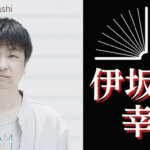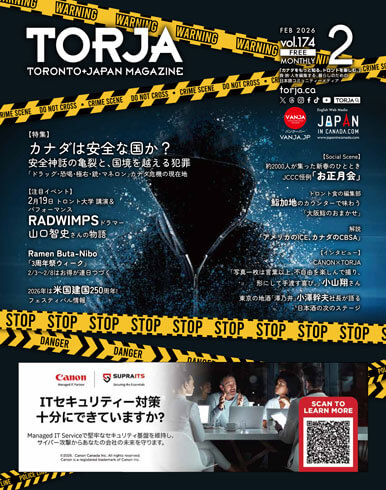TOKYO—The former CEO of TEPCO, along with two other executives, have been indicted by a Japanese court facing charges relating to the 2011 catastrophe at the Fukushima Daiichi nuclear plant, the second-largest nuclear disaster in history.
The “accident” occurred when a magnitude-9 earthquake sent a tsunami toward the Fukushima Daiichi nuclear plant on March 11, 2011. The electrical utility that operated the plant, Tokyo Electric Power Company (TEPCO), knew there was a chance it couldn’t withstand a 30-foot wave. And the tsunami topped its seawalls and caused a triple meltdown.
It resulted in forty-four people’s premature death during the emergency evacuation, injury of thirteen workers in hydrogen explosions at the plant, and a total of 165,000 evacuation from the area surrounding the plant. It caused injuries and a wide-spread radioactive pollution in northeastern Japanese province, and nearly 18,500 died or are missing from the wider disaster.
Japan’s government called the meltdown a “man-made” catastrophe in 2012 and found that measures taken by TEPCO and the Japanese nuclear regulator to prepare for disasters were “insufficient” and response to the crisis “inadequate” in 2012, according to CNN. TEPCO did not reveal that a meltdown was taking place for almost two months and they later admitted that the meltdown announcement should have been announced much sooner, within days of the disaster.
According to Reuters’ report, the company’s own scientists had warned that the plant was in a tsunami-prone area and that the plant might not be adequately prepared to weather one. The research paper concluded that there was a roughly 10 percent chance that a tsunami could test or overrun the defenses of the Fukushima Daiichi nuclear power plant within a 50-year span based on the most conservative assumptions. But TEPCO did nothing to change its safety planning based on that study, which was presented at a nuclear engineering conference in Miami in July 2007. The disaster could have been predicted and prepared for, but TEPCO failed to implement safety measures.
Here is an animated video which breaks down the Fukushima disaster minute by minute.
“Japanese courts don’t stand for people’s interest”—anger at acquittals of TEPCO executives
The much-anticipated verdict, which is the only criminal prosecution stemming from the disaster, ended in not guilty verdicts on Thursday, according to the NHK. The court let the well-connected executives, Tsunehisa Katsumata, Sakae Muto and Ichiro Takekuro, the former chairman and two former vice presidents of TEPCO, who ignored repeated warnings of a potential tidal wave that could result in a nuclear disaster, off the hook. They were facing five years in prison if convicted.
As Tokyo court announced three former executives not guilty in the only criminal trial over the Fukushima nuclear disaster, hopes of some of the victims of the disaster have been crushed and many feel justice was poorly served.
“I couldn’t be more angry,” a man who evacuated from Fukushima told supporters at a rally after the verdict was announced, according to The Japan Today. “We can’t go back to our normal lives. Those who were at the top of the company at the time must be prosecuted!”
Akihiro Yoshidome, an 81-year-old anti-nuclear campaigner from Tokyo, told The Japan Today that he had “braced himself that (they) might not get a clean victory”, but “this is too awful.” “This shows Japanese courts don’t stand for people’s interest. This can’t be true.”
Japanese persecutors had previously refused to charge the executives and only took up the case after a concerted legal effort by the families of the victims who died, and those who were evacuated from the area around Fukushima.
Today, eight years after the original meltdown, tens of thousands of evacuees still remain displaced. Also, the cleanup from the “man-made” disaster is expected to take decades and cost 200 billion dollars to fully decommission the reactor.
Although Japan shut down all of its nuclear plants after the catastrophe, those plants are now starting to reopen; Japanese Prime Minister Shinzo Abe has made getting reactors back online a national priority.
Fukushima Radioactive water may be dumped in Pacific Ocean
This month, Japan’s environment minister Yoshiaki Harada said that water pumped into the stricken plant to cool its nuclear cores might have to be dumped into the ocean, due to a lack of storage space for the thousands of tons of contaminated liquid in the near future. Around 300 to 400 tons of highly radioactive water is generated every day; it’s currently stored in hundreds of tanks at the site, from which there have been multiple leaks in the years since decommissioning started.
“There are no other options,” Harada said of dumping the water into the sea, though other officials claimed a final decision has not yet been made.
Fukushima water is too dangerous to dump into the sea, according to experts
The suggestion of dumping diluted radioactive runoff raised alarm globally and in neighboring South Korea. TEPCO has previously estimated the Fukushima cleanup could take up to 40 years, at a cost of some $50 billion, and nuclear energy experts are saying that’s the cheapest solution rather than the safest.
According to The Korea Times, dumping the radioactive water into the sea may be the most dangerous option at Japan’s disposal, said Kim Ik-jung, a member of Korea’s Nuclear Safety and Security Commission. The expert warned that efforts to clean up a major nuclear disaster is prioritizing expediency over doing things correctly.
“There is another option to deal with radioactive water,” Kim told The Korea Times. “Japan can keep it in the tanks until the radiation level becomes low enough. But this takes time and money. It will take about 300 years until it is okay to discharge the water.”
Fishermen’s groups are strongly opposed to it since rthe contaminated water could affect the Japanese fishing industry over fears of contamination, regardless of whether these are “valid”. The original disaster sparked panics in China and on the United States West Coast, where radioactive isotopes have been detected in the California wine crop. The International Atomic Energy Agency says Japan has to make a decision about what is going to happen to the contaminated water urgently, according to the BBC.
Chieko Shiina who is a long time anti-nuclear activist from Fukushima discusses the present situation. and the continued cover-up by Prime Minister. Abe and the Japanese government.















































